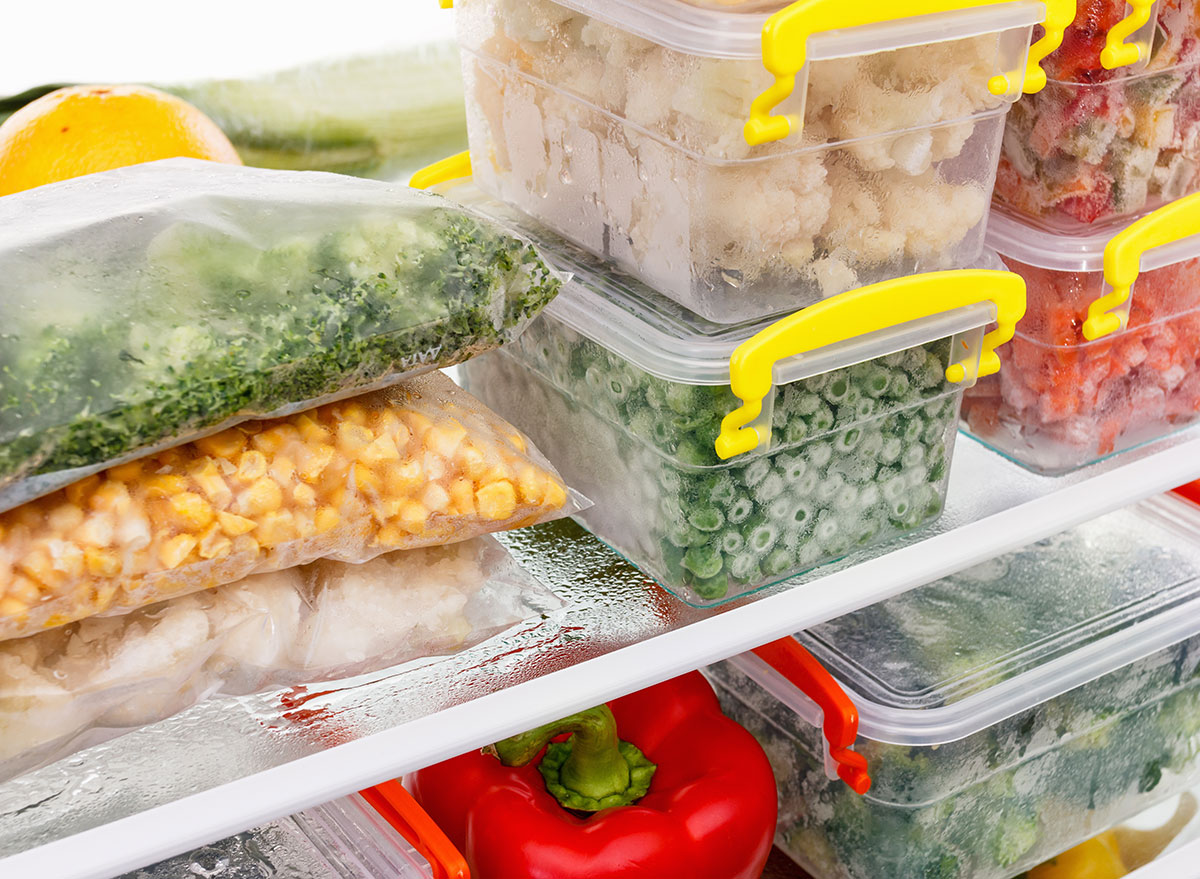
If you only shop the fresh fruits and vegetables at your local grocery store, you might be missing out (and spending more money than you need to in the process). There’s a misconception that fresh produce is always better, but that’s not the case! Frozen fruits and vegetables are frozen at the height of their freshness, locking in nutrients. So if you aren’t regularly shopping in the freezer aisle for produce, now is a great time to start. (Plus, you don’t have to worry about frozen fruits and vegetables going bad before you get to use them.)
Here are some fruits and vegetables that can be more nutritious frozen than fresh. You might be surprised!
And for more, check out these 15 Classic American Desserts That Deserve a Comeback.
Peas
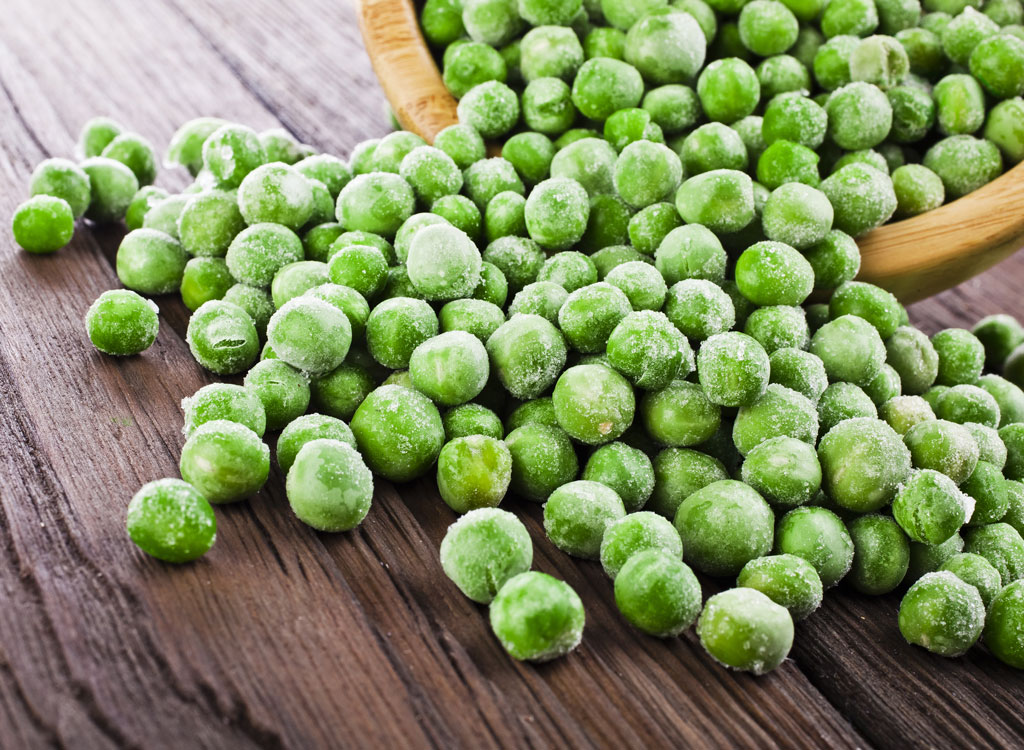
Believe it or not, frozen peas may be higher in vitamin C than fresh ones, according to Healthline. So don’t be afraid to stock up on the affordable frozen vegetable—frozen peas are great in everything from fried rice to pasta dishes.
Spinach
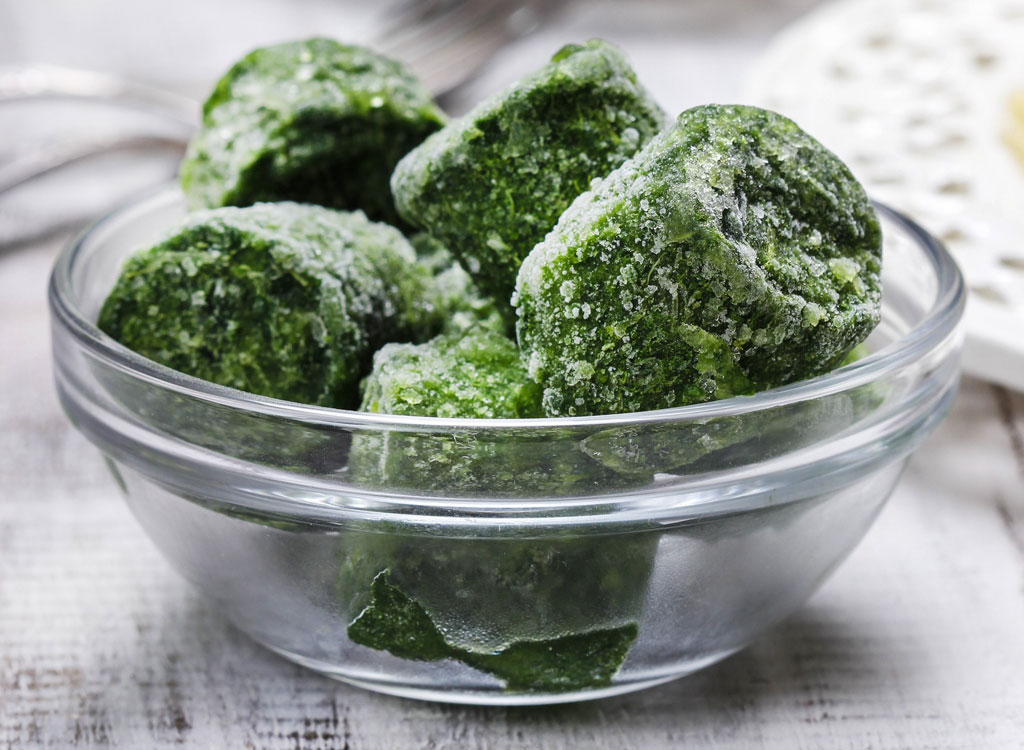
Like peas, frozen spinach tends to have more vitamin C than its fresh counterparts, Healthline noted. Try adding frozen spinach to this easy baked eggs recipe for breakfast in a flash.
Carrots
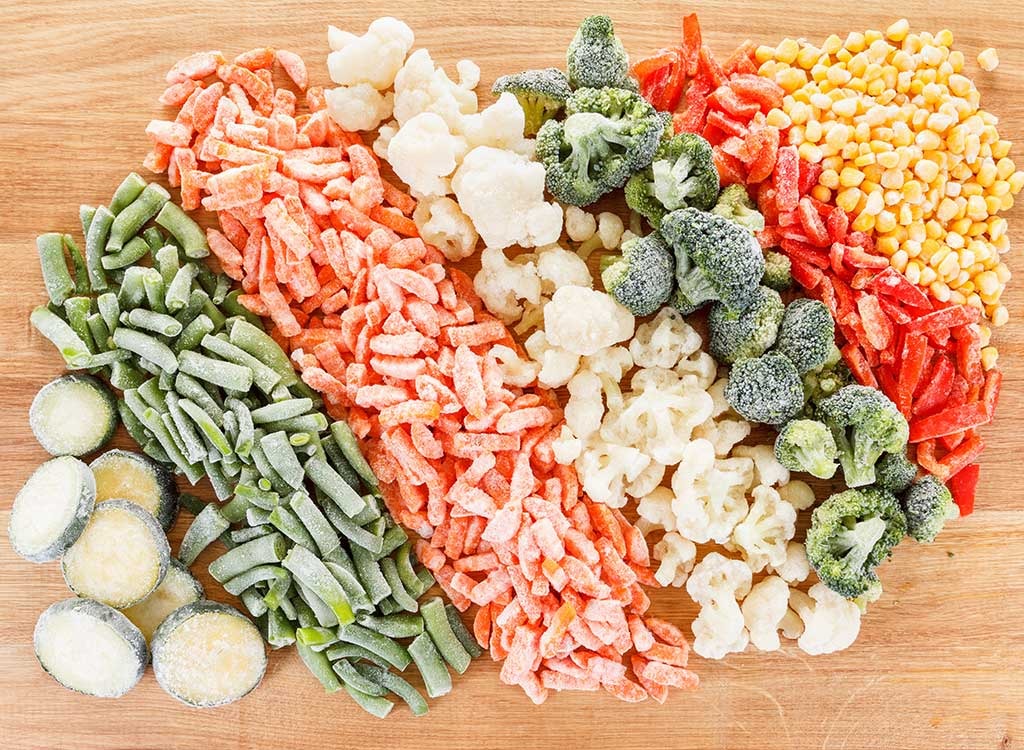
Unless you’re eating carrots from a farmer’s market, they might have lost some nutritional value during the shipping and storage process. According to Harvard Medical School, “within a week of refrigerated storage, carrots can lose close to 80% of their vitamin C.” Yikes! If you’re not eating them right away, don’t be afraid to buy frozen carrots instead of fresh ones.
Blueberries
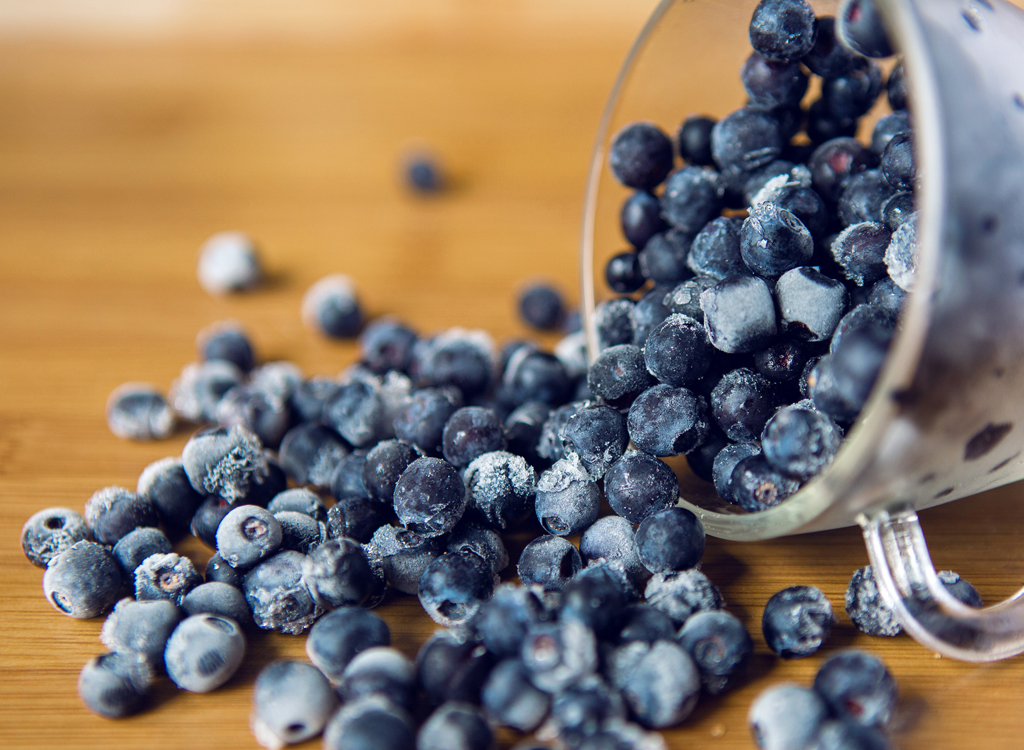
A 2013 study from the University of Chester found that fresh blueberries lose vitamin C the longer they’re in the fridge. Frozen blueberries had a higher vitamin C concentration than fresh blueberries in the first place, but after three days of refrigeration, the fresh blueberries lost a lot of vitamin C.
Of course, defrosting frozen blueberries won’t give you the same enjoyable texture if you’re eating them plain or with yogurt. But for breakfasts like smoothies and oatmeal, frozen blueberries are a smart choice.
Green Beans
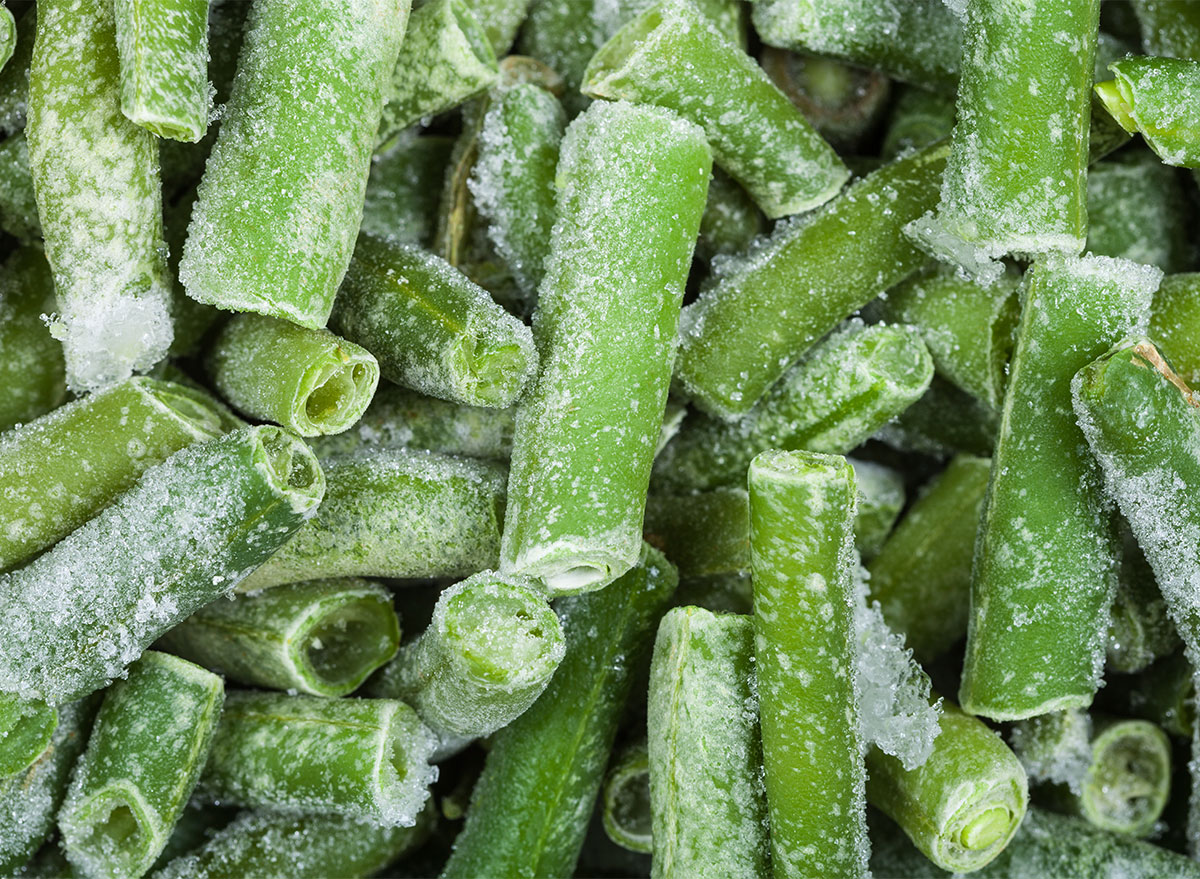
As with blueberries, fresh green beans lost a significant amount of vitamin C after three days’ refrigeration in the University of Chester study. So don’t be afraid to use frozen green beans in your green bean casserole this Thanksgiving.
“When you compare fresh string beans in a store versus frozen, frozen will almost always be higher in nutrient content, because they were picked and processed at the highest point of quality and then frozen to preserve them,” Mario G. Ferruzzi, a nutrition science professor at North Carolina State University, told CNN in 2019.
Corn
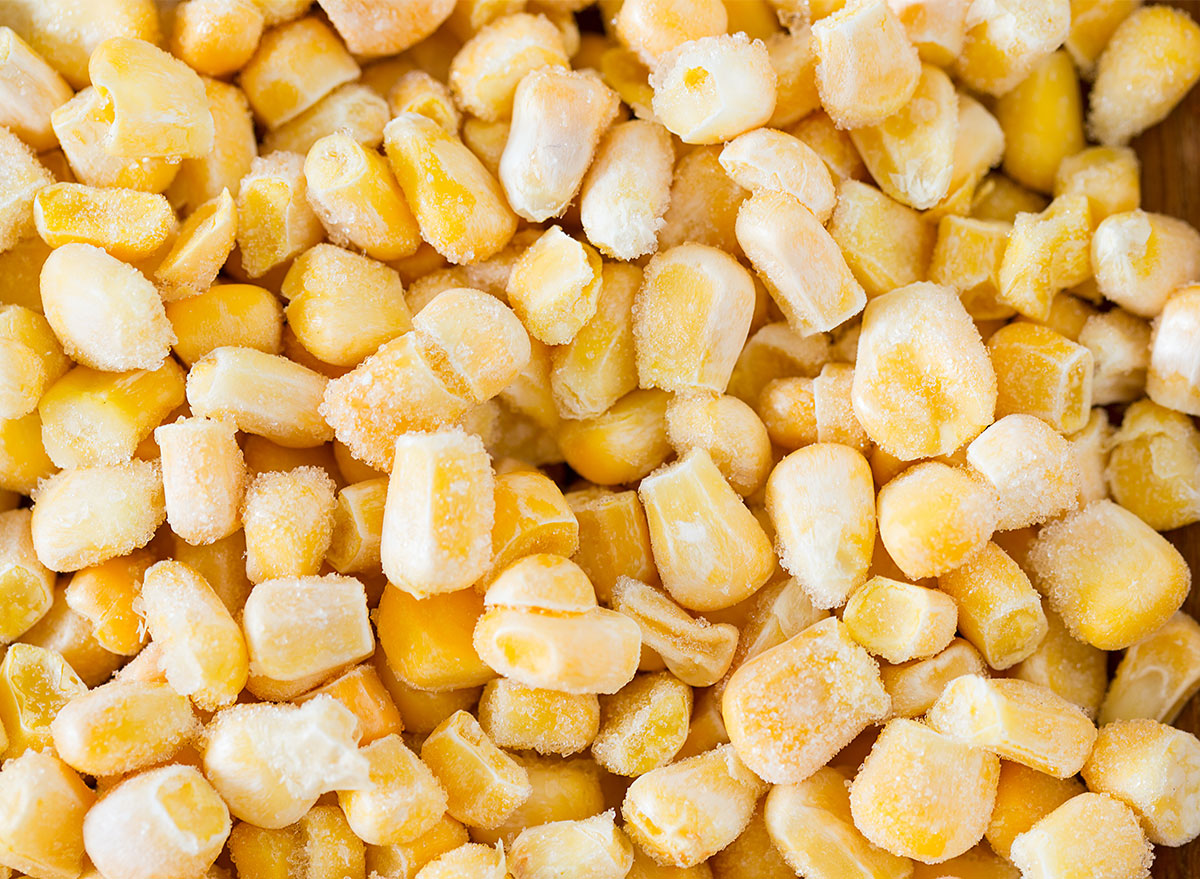
Citing a University of California-Davis study, The New York Times reported in 2016 that frozen corn was found to be higher in vitamin C than fresh corn. But whichever way you enjoy the veggie, it has plenty of nutritional benefits.
And if you’re curious about which foods are better fresh than frozen, the University of Chester study found higher concentrations of vitamin C in fresh cauliflower than frozen cauliflower. Try the fresh version in one of these 17 Genius Cauliflower Recipes.
But when all else fails, don’t stress too much about the difference between fresh and frozen produce; you’re getting plenty of nutritional value either way.
For more, check out these 108 most popular sodas ranked by how toxic they are.








